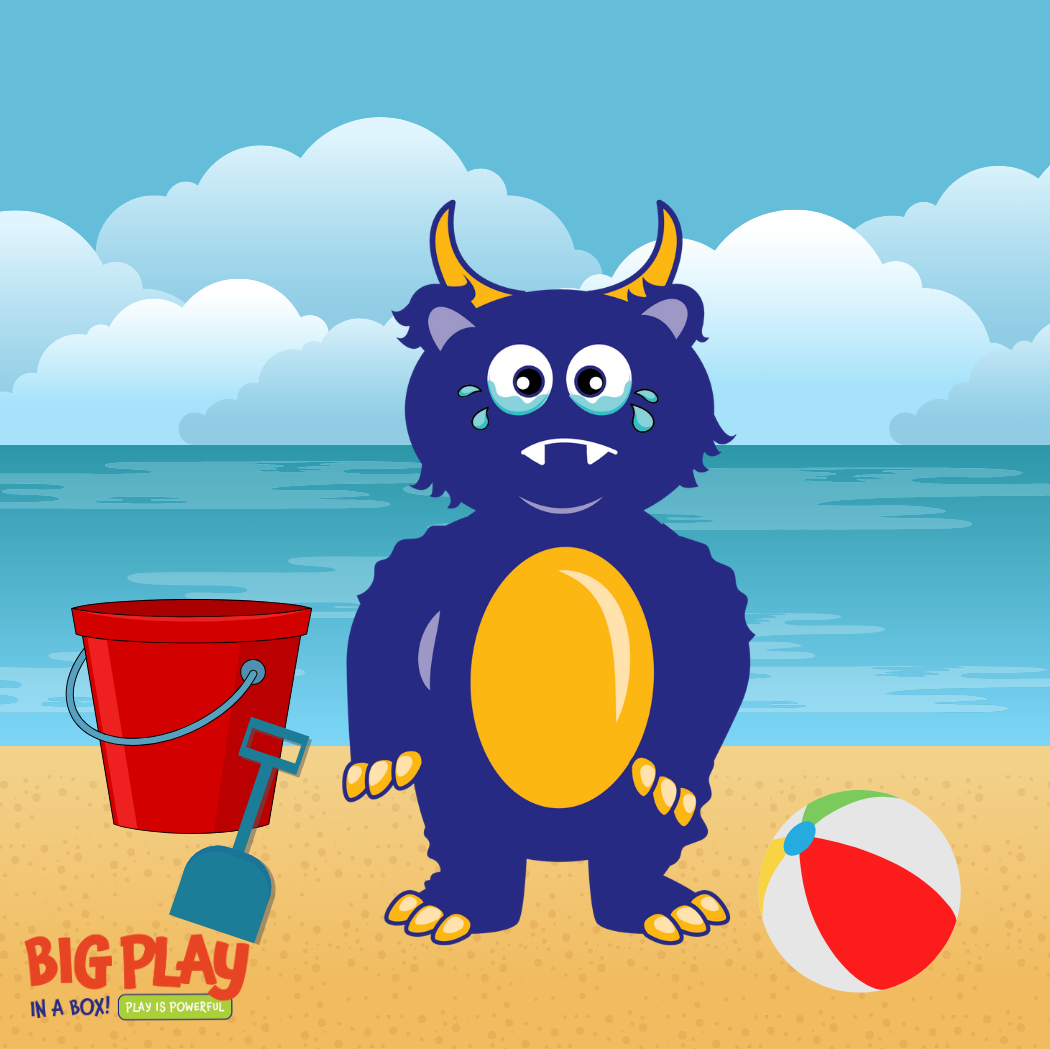
It's that time of year. Vacation! Sounds dreamy, right?! Until it is not. Our idea of getting away for fun with our family may not coincide with our children, especially if they have Sensory Processing Disorder (SPD).
In a nutshell, SPD is when our brain has trouble receiving and responding to information that comes in through the senses. If we are responding in a typical and expected manner, likely our brain is comfortable and has been able to filter the information provided by the environment. We are able to participate effectively with what is going on around us. If our brain "over" responds or "under" responds to that information various behaviors are exhibited such as shutdown, meltdowns, hiding, running away, becoming excessively verbal, agitated, and the list goes on. As a young child who is learning about their own body, they are not able to use words to respond to their discomforts, so the result is behavior that can turn a seemingly enjoyable activity into an extremely uncomfortable one for the child and those around.
Children with Sensory Processing Disorder (SPD) are most comfortable in their own environments. There is so much that they cannot control when it comes to the way their body responds to sensory stimuli. Home is the most predictable and provides comfort in that they know what to expect with sounds, smells, sights, etc. School or daycare may be a close second as typically there is a routine involved.
Now, throw in a vacation. The comforts of home are no longer available. Routines are disrupted. There are so many unpredictable moments. Sleep is more difficult. Food is "different". There is a lot of car time, crowds, and hot temperatures. All of this can be difficult for a typically developing child, let alone one who struggles with filtering out sensory stimuli.
For purposes of this blog, we are going to give you 10 ways to prepare your sensory child for a beach vacation. Of course, you can alter it to fit any vacation that you have planned. While it is near impossible to prepare for every situation that arises, following some of these tips may help alleviate the stress on your child and of course YOU as well!
10 Tips to Prepare For Your Beach Vacation
1. Prepare by finding books about going on vacation or going to the beach. Social stories such as this ONE will help give your child some visuals and expectations of what happens when talking about going to the beach.

2. Desensitize with beach textures. Create sand/water sensory boxes for outdoor play. Find playgrounds in advance with sand to explore with no pressure. Try to find times that are cooler in the day and less crowded if possible. Search for local beaches to practice before you go to the "big" beach.
3. Practice applying sunscreen inside without the additional elements of outdoor pressures. Be mindful of the smell of sunscreen and, the sticky residue left by sunscreen. Once you find one that your child accepts, get plenty of it and stick with it! Practice wearing beach gear at home including long sleeve sun shirts, sun hats, and sunglasses.
4. Trial water shoes at home prior to the beach. Texture of sand on feet can be very offensive to some children, so simply wearing beach shoes or socks can prevent this. As well, practice frequently any water floatation devices you will be having your child use in or around the water. Wearing a life jacket for the first time can seem very invasive and uncomfortable for a sensory sensitive child, so practicing until you find an acceptable one at home will be of great benefit to you!
5. Bring along either some talcum powder or cornstarch in a container to apply to skin. It helps stubborn sand get out between toes or stubborn areas.
6. Avoid the busy hours on the beach. Early morning or later in the evening are often when your children are more apt to enjoy when the hot sun is not beating down, there is less commotion, and naptime if applicable has not been missed.
7. Pack a kit of sensory-friendly items that are of comfort to your child. Favorite fidgets, snacks, drinks, cooling cloths, battery operated fans and misting bottles can be life savers.
8. Along with the typical beach toys, consider bringing a collapsible beach tub such as this one from Amazon. You have a water source that is less intimidating than the ocean and can literally entertain a child for hours filling and dumping.
9. Does your child have a difficult time with sounds? Don't forget to bring their headphones if they are used to wearing them. Play ocean sounds on an electronic device at home preparing your child what to expect with sounds on the beach.
10. While we could not be any happier for our children to enjoy the ocean as much as we do, it may take several trips before he/she is ready to enter the ocean water. Remember, their systems are extra intuitive. Everything feels "more" to them. Temperature, sand, rocks on the floor of the ocean, splashing on their face, their clothing, the bright sunlight. I could go on and on. Do not force entry. Water fear is real and you can backslide any water play with a negative experience including even bath time!

Many sensory sensitive children thrive at the beach! There are so many opportunities for "heavy work" which in turn calms the nervous system. Digging, dumping, dredging, running through deep sand, and paddling in water release nuerochemicals that balance all the chemicals in the brain allowing for the ability to be "present".
Are you looking for some alternatives to screens when traveling? Big Play in a Box creates developmental play activity boxes that are perfect to provide your child an outlet to read, create, and play when having some much needed downtime during vacation. Check them out HERE! We hope that by preparing your child prior to your vacation, your family will be able to make some unbelievable memories at the beach this summer!

